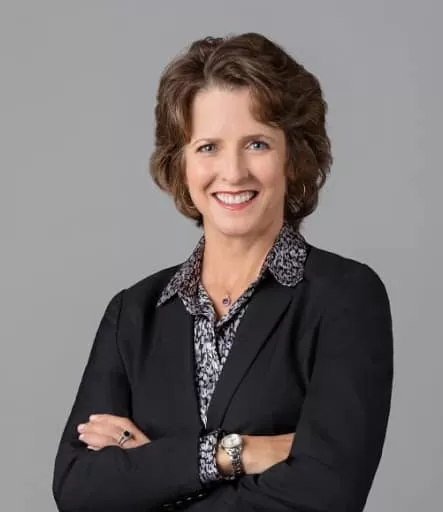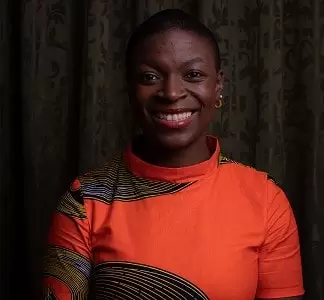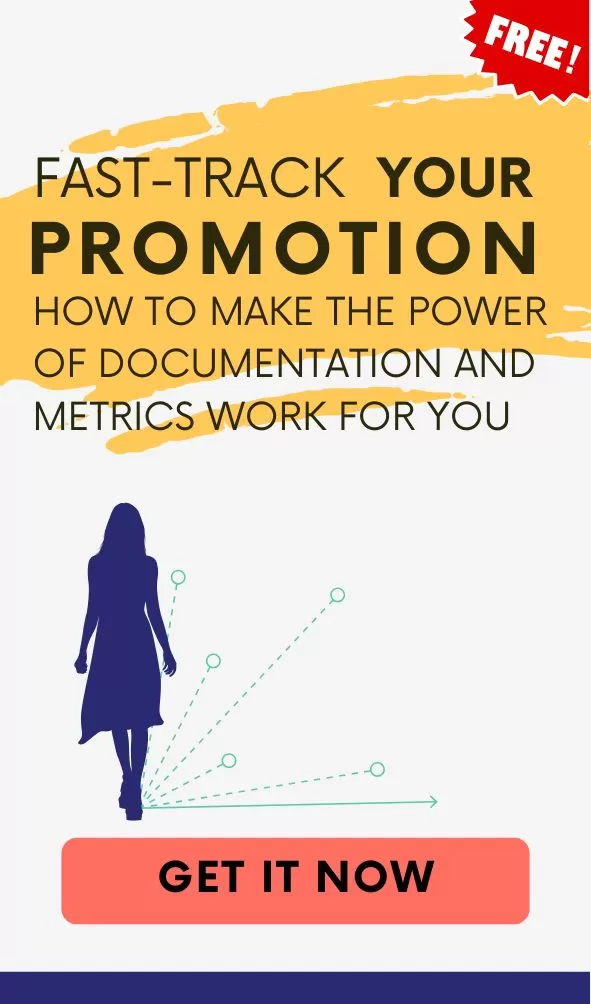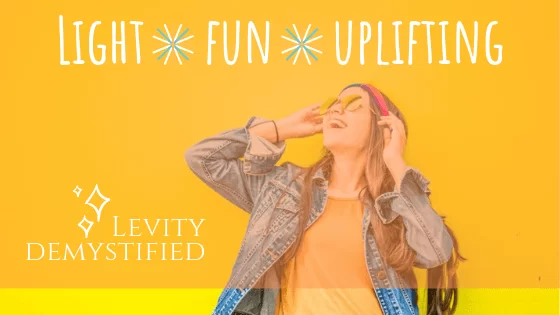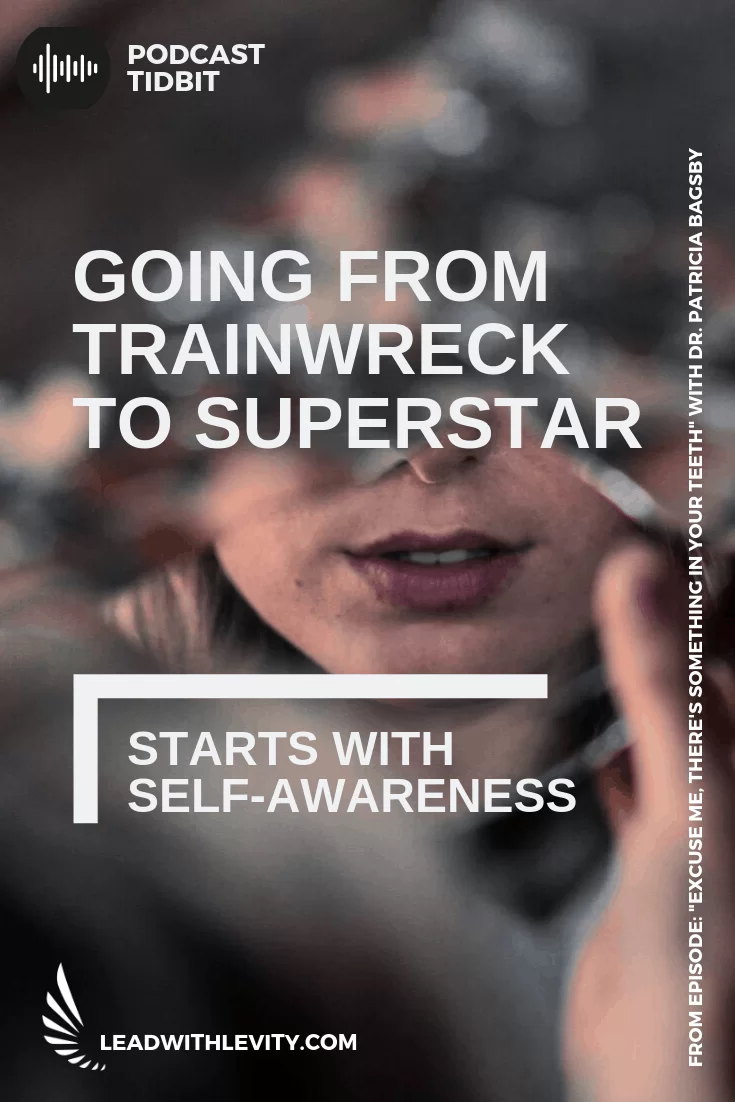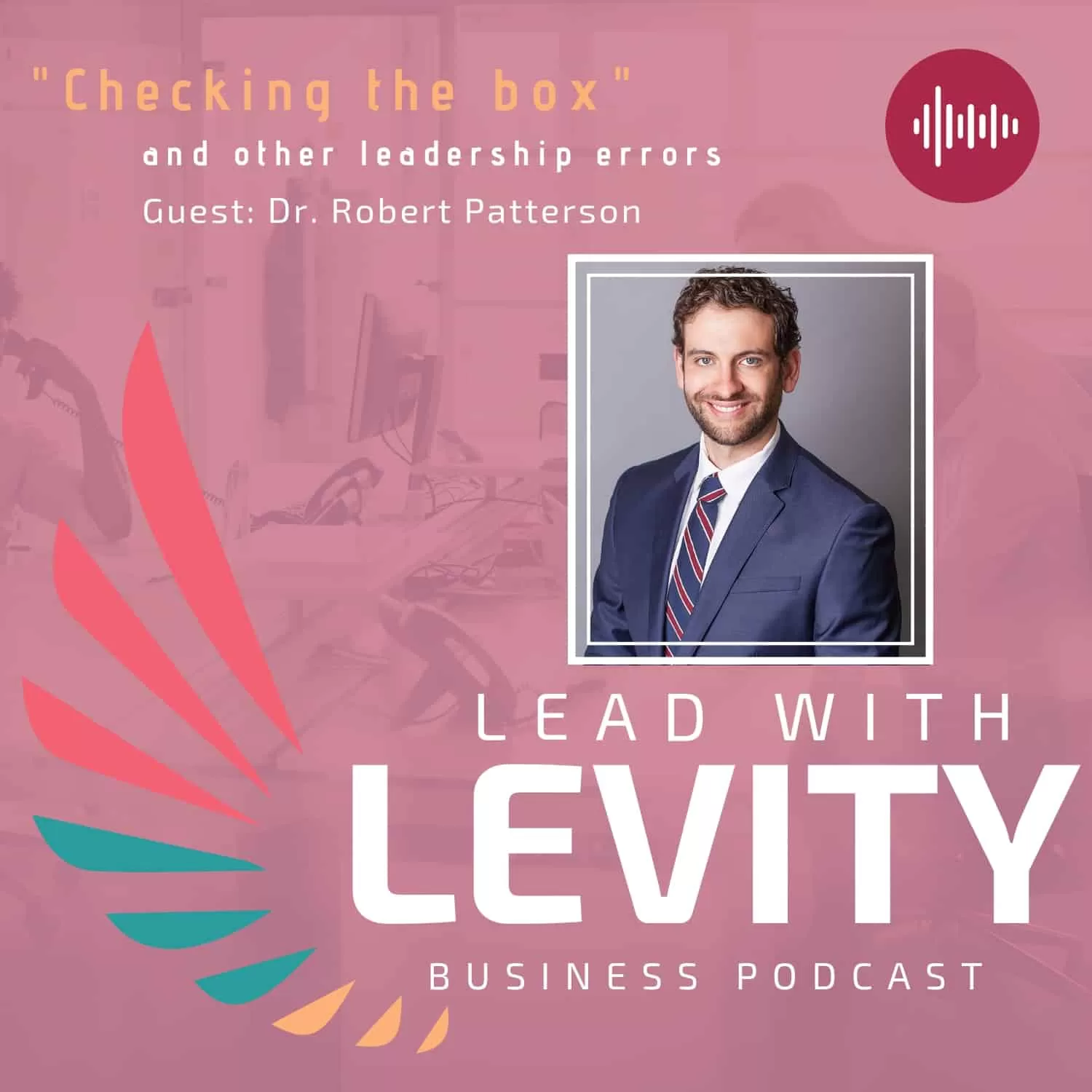Do you need a team building activity for your kid coworker? Kid coworkers are not the same as your coworkers at the office. They eat up all your food. They don’t respect your meeting schedules, and they take a cut out of every paycheck that you make. It’s just not the same. If one of your coworkers in the office did that… you’d file a complaint with HR. This episode is dedicated to parents and adults who are trying to get work done around littles, kids, and teens. How can you create a fun work from home environment with kids? Today we’ll explore a team building activity that’s based on our guest, Dr. Beth Brown’s F.U.N. model and a team building activity for you and your kiddos.
Dr. Beth is a sports psychologist and CEO of Team Aureus®. It’s a consulting agency that’s dedicated to empowering individuals and teams to perform at their highest levels in sports business, and life. She co-founded Super Power Golf. It’s a business dedicated to helping women transform their lives on and off the golf course. And she also has a passion for youth, which I really appreciate. Dr. Beth also serves on the We Are Golf Women’s Task Force managed by the World Golf Foundation. And she recently launched the Champions Mindset Leadership Series. I’m looking forward to this conversation today because we’re going to diverge a little bit from adulthood to talking about what is it like to work with your child coworkers, and a team building activity to ensure that we are creating fun workplaces even when we’re at home.
In this episode, we cover:
- How to surviving working from home with kids
- How to engage your kids in developmental conversations
- How to overcome failure
- An overview of Beth’s F.U.N. model and how it can be applied to help you connect with your kiddos
- How to engage your kids so they can help you create a fun environment at home
Prefer to read instead?
Expand to view quotes from this episode
“You’re responsible for the win. You’re responsible for the loss. You are not the loss.” Beth Brown, Ph.D.
“The biggest thing is not imposing our adult mentality on them. They’re not miniature adults.” Beth Brown, Ph.D.
Expand to view episode transcript
Heather Walker, Ph.D.: [00:00:00] Welcome to the Lead with Levity podcast. I’m your host, Dr. Heather Walker, and I’m happy to share today’s guest with you. Her name is Dr. Beth Brown. Dr. Beth is a sports psychologist and CEO of Team Aureus®. It’s a consulting agency that’s dedicated to empowering individuals and teams to perform at their highest levels in sports business, and life.
She co-founded Super Power Golf. It’s a business dedicated to helping women transform their lives on and off the golf course. And she also has a passion for youth, which I really appreciate.
Dr. Beth also serves on the We Are Golf Women’s Task Force managed by the World Golf Foundation.
And she recently launched the Champions Mindset Leadership Series. I’m looking forward to this conversation today because we’re going to diverge a little bit from adulthood to talking about what is it like to work with your child coworkers, and what can we do to ensure that we are creating fun workplaces, even when we’re at home?
Dr. Beth will be joining us in a second. In the meantime, stick around and check out some highlights.
Oh, it’s okay. I’m frazzled all the time.
I was in a meeting recently and the presenter, at some point she had to just kind of call out the elephant in the room. And she was like, “My five-year-old coworker. I’m sorry. You know She’s just so demanding, and there’s a lot going on.” She just kind of put it out there. “Hey, y’all, I’ve got, I’ve got this coworker who is kind of getting in the way of the presentation!”
“I apologize.” I’m a mother myself, and parents are really stressed and really trying to figure out what are we going to do? It might be an interesting take to also speak to parenting and working alongside your kid in this season. How do you create a really good environment, a working environment, even when your coworkers are like underage?
Welcome I’m so excited for today’s guest. Dr. Beth Brown, Dr. Beth is a sports psychologist and CEO of Team Aureus®. It’s a consulting agency that’s dedicated to empowering individuals and teams to perform at their highest level in sports, business, and life.
Dr. Beth, welcome.
Can you tell me a little bit about your story? I think it’s so cool that you’re a Sports Psychologist. I think there are a lot of similarities between Sports Psychologists and IO Psychologists.
I don’t want to geek out on our listeners or anything like that, but it’s pretty safe to say that your specialty, your focus is golf. Right?
Beth Brown, Ph.D.: [00:03:40] Yes, I would say really golf, basketball and then all sports. But growing up, my two main sports were golf and basketball.
Heather Walker, Ph.D.: [00:03:47] What do you love so much about golf and basketball?
Beth Brown, Ph.D.: [00:03:53] Well, I started with team sports, and I love doing things with other people and collaborating, and connecting with other people…that synergy that’s created.
My story of how I got started in golf was I would just play two or three times a summer, starting at eight with my dad. He was a high school basketball coach and local businessman. And then, when I was 11 I got really into competitive softball.
My brothers got drug around. We were playing all summer. I can remember being in the car crying on the way home because we lost the game. And in my estimation, it was the shortstop making an error that let the winning run come through. I was crying and I remember my parents kind of looking at each other, looking at me in the backseat and saying, okay, we need to get you playing a team sport.
Individual sports, excuse me. In the little town I lived, it was golf or tennis. That was the option. I think I picked golf because of my dad. The thing that I learned to love about golf, yeah, as I was in 12 years old, the next summer not playing soccer well again, and I always played basketball.
Just my dad was a basketball coach. That became my team sport in the summer. I was 12 years old. I would go play golf in the morning. He had a Dairy Queen in a little local convenience store, and I would go with him to work, go over and walk the 9-hole golf course with my little vinyl red bag and like six clubs by myself, play nine or 18 holes, sand greens.
There was no driving range or anything. And then I would go work at the Dairy Queen from 11:30 – 3:30, and then I would head back to the golf course by myself. That was 12 years old. And that was the summer I learned it depends on you. It’s all about you. And I did throw a golf club in the creek. I threw a golf club in the tree.
And after that happened, my dad was like, if you ever throw another golf club, you’re never playing golf again. It’s this idea of these things you learn playing an independent or individual sport that it all relies on you. It’s like this is emotional management and it’s all about you and your performance.
You’re responsible for the win. You’re responsible for the loss. You are not the loss. You are responsible, and how do you start to manage and develop that? So, and again, you develop those things for team sports, but when you’re just on your own on the golf course you learn a lot about yourself. It was a great balance I had growing up with those two sports. The basketball being my team endeavor. Golfing individual. If I had to choose, I would always go back to the team. Right. But, I’m so thankful that my parents, that when they looked in the back of the car and said, you need to play an individual sport. That was probably the most impactful thing on me as a young person growing up in my development.
Heather Walker, Ph.D.: [00:06:37] Hmm. Yeah. I know when I was a little bit younger, I used to play tennis competitively and I really love that you brought up this distinction between individual sports versus team sports. You have to know what works for you.
You have to realize that that you are the one who’s bringing all of that energy to the engagement and managing your emotions is really important. When I played tennis I learned that I’m so competitive. I would play a match, and if I didn’t win, I got so upset. So down on myself, so frustrated that I would start to wheeze…and wheeze, and then I’m like, “I’m dying, I’m dying here! People take me to the hospital now I’m dying!” That’s a little bit of drama, but I found out that they were panic attacks, and it’s really important for people when they’re working individually or on a team to manage their emotions so that they don’t run into those situations. What do you find helps develop that emotional maturity for players, whether they’re on a team or individually?
Beth Brown, Ph.D.: [00:08:21] Yeah, well, first just acknowledging that that’s human…that’s nature. We’re going to have those emotional reactions. I had a mentor talk to me once and it’s really stuck with me over the years that we can’t always control the reaction, but we can control, learn to control, have strategies to control the intensity and the duration.
First just normalizing that it’s okay to have a reaction, but then it’s how effective in our performance is that reaction for us? Acknowledging it’s human. Then, okay how effective, how much is this helping me? And if it’s not–okay, now I’m incented to do something differently to develop a strategy to put in place.
That’s the key. You and I could probably talk about a thousand different strategies for dealing with things and everything is really unique. The most important thing is that it has an internal and external component. If I’m your coach on the golf course, and I’m seeing you react immediately to a bad shot, then how will I know that you’re changing your responses?
It may be something with your posture, your body language. And then, you maybe have something you’re saying to yourself, some self-taught going on inside, but the biggest thing is whatever strategy then that you put into place has that external something visible, physical, and then something internal.
And then again, there’s a thousand ways to do that. It’s going to be unique to unique to each person.
Heather Walker, Ph.D.: [00:09:53] That’s really interesting. I’ve seen some shifts, I would say like really major ones…not only engaging in sports, but also watching sports and watching people play that’s a form of fun for a lot of people. People get a lot of enjoyment from that.
They’ll spend all day watching commentators on TV, talking about people playing. We’ve kind of shifted away from that because of the pandemic. I’d like to get your perspective on this: What can parents do? What can people who are sports enthusiasts do to continue to stay connected to the sports that they love?
Beth Brown, Ph.D.: [00:10:46] Yeah, that’s a tough question, right? For some activities, in some places now people are able to get out and play, and do things. Right now, staying connected for many people who have kids…I know we were talking about your daughter.
Getting out with them around your house or neighborhood…whatever’s safe. But, we were talking about this idea of staying connected through sports and having fun. And I have that acronym for F.U.N. It started with parents, but we can apply it. I think we can apply it in the workplace, right?
Yeah, right, F.U.N. Stands for Focus, Understanding. kNow. Focus on what? We’ll focus on the process versus the outcome. And why? Because we have control over the process. So if it’s with kids at home what can you do? And you’re helping them with their school at home helping them really focus on something.
They have control. Even if it’s just like sitting down and doing your homework for an hour…being there and being focused on the process of that right now. Or if you need to take a break, okay. Take one break and get up and walk around and go walk my dog and come back and focus for another 30 minutes versus just what the outcome is, or in sport, just what the score is, or did I win the tournament?
People can engage in focusing on a process –the first part of F.U.N.– whether they’re at home with their kids, out in the yard, in the neighborhood, and in a safe way. The U in the F.U.N. Factor stands for Understand…and especially with kids. But, again, this applies to adults–all ages. Understand that learning takes place over time.
And we live in an instant gratification society. We all know that… attention spans and all that, but again, especially with young people as developments happening. They’re not miniature adults. They are not going to be at this level right away. And if we’re over them and we have adult expectations, and we place those on them that’s why we see kids dropping out typically around the age of 12. Something around 60% mark. Focusing on the process is the, the F and the fun factor, understanding that learning and development takes place over time. Getting out with your kids, even if you’re just. A little, little kid, like you’re tossing a football to them and getting into swing and like how many times 10 did they make some sort of contact?
Right. It doesn’t have to go over the fence. And so, and then the next day like with my dog right now, he’s like, he’s fetching. And so, wow. It’s like, okay, he got like three in a row there. Right. And then the next day, maybe he gets four in a row…understanding that development.
The biggest thing is not imposing our adult adult mentality on them.
They’re not miniature adults. And then the last thing and the fun factor, the end, which is actually a K. Know that you as the the adult, the parent, the guardian–that in my case, the aunt– we’re the most influential. We need to know that we have the biggest influence on young people.
The biggest thing with that is that really having that quality time with them where we’re actually present. It’s not always about the amount of time, but it’s about knowing how influential we are and being present. And actively listening and engaging or playing out in the yard, or if we’re helping them with their homework in the home being really focused on him in that moment.
And I don’t have children at home with me, but I have so many friends in my, my, youngest brother has three boys who’ve been at home. It’s like very obviously stressful as I watched them dealing with that. Trying to divide their time between doing their own work and being with their kids.
Again, really being intentional about those moments that were with those young people that were influencing. And it’s more about that listening and being there, present within then the overall duration at the time. of course at some point that becomes important, but, but again, what I’ve seen in coaching over the years and having a long period of time working with adults who were, parents or coaches of youth.
Ages seven to 17, and this idea of focusing on the process, understanding that learning takes place over time. And the knowing that, especially parents and guardians are most influential up to the age of 12, which is where they’re going to, it’s going to determine if they stay in sport or not.
Just knowing those things can really help right now– can help always. But, especially right now, when a lot of kids are in the homes with their parents,
Heather Walker, Ph.D.: [00:15:54] Got it. I’ve been pondering this lately because Lead with Levity is designed help organizations create really amazing work environments for their employees. But a lot of employees are at home right now. They’re working remotely. How can we still instill all of that, even though people are working remotely and I’m glad that you mentioned this intentionality that we need to bring and also understanding the importance that we have in kids’ lives.
Whether they’re our kids or they’re related to us, or even our neighbors, because right now, a lot of people have these kid coworkers, right? And these kid coworkers are not the same as their coworkers and the office. They eat up all your food. They don’t respect your meeting schedules, and they take a cut out of every paycheck that you make.
They’re there. It’s just not the same. If one of your coworkers in the office did that… you’d be done! You’d file a complaint with HR–and you can’t do that. You can’t do that right now. How can we help parents and adults who have littles, and kids, and teens, and all of that in their homes with them?
How can you create a fun work environment, even with all of that now that you’re in this different space?
Beth Brown, Ph.D.: [00:17:22] Absolutely. And I think people could take this idea of the F.U.N. Factor. Obviously I have this acronym that we just talked about, but I’m just thinking off the top of my head right now, what if we sat down with our kids, with our niece and nephew, whoever those people are that we’re around, and found out what fun is to them now, what would that look like?
What would that sound like? Because a lot of times, and we know this from different personality stuff. It’s like we try to do and try to give, and we do this at work too. We decide for example, at work, like we need to give support and challenge that balance to get people to the high performance zone.
In our mind, we think we’re giving support. But that may not be the support that that person needs. Same thing like with, with kids and the fun factor, what is fun? Like what would, what would be, what would make learning more fun? Well maybe it’s how long they’re sitting there. Maybe it’s taking breaks.
Maybe it’s getting to go outside and play. Coordinating some of those things, but getting the kids engaged at any relatively, any age they’re going to be able to, once their school eyes are going to be able to share with you what fun is to them. Finding out what that isn’t and defining your own fun factor, maybe having a fun factor theme for the day or the week.
I don’t know. Just come up with your own ways of creating your own fun factor in your home right now, with all the things going on.
Heather Walker, Ph.D.: [00:18:46] That’s a really, really good point. I know in our home, At first, it was really challenging because It’s like, “Oh, mommy’s here all the time. We can talk, we can chat. I want you to watch this show and we’re going to go outside and we’re going to play and we’re going to do this. We’re going to do that.”
And that to say, Ooh, this is not going to work, but all of that energy needs to go somewhere. And how can we take that energy and redirect it into really productive ways. I gave my kid coworker a position, a very important position within the company. She actually plans family fun time at the end of the day.
Beth Brown, Ph.D.: [00:19:31] Oh, wow.
Heather Walker, Ph.D.: [00:19:33] She takes it very seriously. She’ll spend half the day planning family fun time. And then at the end of the day, we have an hour where we have to do whatever she wants us to do. And I’m really, yeah. Actually amazed by some of the activities that she comes up with. Like, okay, today we’re building a Fort today.
We’re going out and. You’re going to teach me how to ride this bicycle. We’re going to go to the pool. We’re going to bake. It’s a lot of variety and things that I probably wouldn’t come up with on my own because I’ve had a busy day or I’m not, I’m not spending time researching new things that we can do, but she has all of this time.
That has been something that’s been really helpful for us.
Beth Brown, Ph.D.: [00:20:18] You’re already doing this, Heather. That’s incredible. That should give some people some great ideas. I love that.
Heather Walker, Ph.D.: [00:20:25] I really do believe that there is a way for us to create this good environment, even at home. And one question that I have for you, because I know that your coaching is something that is a big part of your model, what are some of the greatest challenges that your clients are coming to you with right now? And, What are maybe some of the top solutions. Do you have any tips to share with our listeners today?
Beth Brown, Ph.D.: [00:20:57] Yeah, absolutely. The biggest thing that people are facing that I’m I’m coaching is uncertainty. Right. There’s just so much uncertainty. And many of these people are in the sports world. Think about, look at what’s happening in collegiate sports, especially the different conferences are making decisions right now.
And just everything is up in the air. These are people. These are incredible leaders, people who are used to winning right. Defined in many different ways. now they have. No control over most of what’s happening. That uncertainty is a huge, huge challenge. And the other challenge then that closely follows that then is communication because they’re having to communicate about what they don’t know to people who are following them.
And oftentimes these are young people, whether it’s youth sports, high school, collegiate. And so, in terms of the uncertainty piece, one of the biggest things we focus on is what I call the circle of control. And it’s it’s super simple, right. But it’s super impactful if we actually implement it in our lives, this idea, what do I have control over?
The second circle is what do I have influence over? And then what do I have no control over? We use this tool circle of control to work through that. That’s just one example around the uncertainty and just bringing people back to what they have control over, which they can help them influence that second circle the people in environment around them, on the communication piece, that’s been a big one.
Cool. It’s like, how do we communicate one we’re working remotely. And two, we’re trying to communicate things we don’t know about… so a couple of things there. One is just this idea. A tool that I like to use is called the communication code. And the communication code is this idea of conveying clearly up front– like we have somebody sending a message, somebody receiving a message. But if we could say up front what it is, the purpose of the conversation, if you will giving some context to it, then we can start to communicate better. It’s like give the code to the conversation before we start the conversation.
There’s five C’s: Critique, Collaborate, Clarify, Care and Celebrate. Depending on our personality, we may have a tendency to immediately go to critique, right. Different. You can start to probably imagine people they just automatically go there. collaborate. That’s that’s me automatically.
Just want to, Hey, I’m just sharing my, I just want to share ideas, right. And I want people to help shape this with me. clarify checking in to understand some people are just really incredible genuine listeners right there. They’re not asking questions to then try to jump into just critiquing it.
They just want to understand they just want to be there and understand what you’re trying to do. And then the caring there’s people that are just great at that. Right. Like just want to create a safe space, that psychological safety that I heard you talk about with some of your other podcasts. And then some people are just great at celebrating.
Right. Just super amazing at that. They just want to celebrate all the time. There’s others like, okay, done. Let’s move on. Right. And there’s this, wait a minute. I didn’t get a chance to celebrate. Usually we’re depending on it, personality good at a couple of those, or I just wanna say good, their natural tendencies there they’re like natural for us.
Like. Like I’m really collaborate, celebrate boom. I’m there. Yeah. And then, so if we can use, so this tool is actually one I’m using with a few people, because it’s just been so impactful. Practicing caring, like if I’m automatically just amazing at critiquing, especially with so much uncertainty, so much hurting so much …people are dealing with so much stuff. Like I’m just going to practice caring. Start to define what do those behaviors look like? Going back to what I said earlier about having this I’m big on having like an external there’s something external that people should see here notice. If I’m practicing, caring, and then there’s something going on inside of you.
There may be some self talks and triggers some different things. Maybe if it’s celebrate that, I need to work on that. Just not a natural tendency of mine. Being intentional about how am I going to celebrate, many celebrations, many wins. Anyway, this I’m going on cause I love the communication code.
This is just an example of one leadership tool that I’ve been using to work with some people through how they’re communicating. And to become more effective leaders through communicating it in these uncertain times.
Heather Walker, Ph.D.: [00:25:32] No, that’s good. I like that. It reminds me a little bit of the Seven Thinking Hats. de Bono. Yeah.
So, yeah, it’s basically like a way of holding a meeting and, each person takes on a different perspective, active. so one hat might be, I critique everything. That person would have for that meeting.
Whatever idea that we’re having, we’re talking about. Their job is to critique or to be devil’s advocate. You might have a person who their job is to come up with new ideas or to relate those ideas to other things. It reminds me a little bit of that. I know this is completely separate cause you’re talking about communication styles.
But it just immediately, that’s what I thought of. I was like, Oh yeah. Seven thinking hats. Have you heard of that one? I think you’ll enjoy it. It’s a great thing to facilitate. It’s kind of an old, old school model. I don’t think people use it as much anymore, but, the, the idea is still pretty much apply. One thing I’m wondering about: Is you’re developing people, you’re developing leaders, who are working through uncertainty. They are trying to figure out how do I communicate to people? Are you finding roadblocks challenges… even resistance because of budgets? Budgets are really, really kind of sketchy a little bit thin right now. I’m wondering, do you believe that companies should be investing and developing and they’re developing their teams? Getting people feedback, helping them reach their potential is now still a good time to invest in that way.
Beth Brown, Ph.D.: [00:27:29] Yeah, absolutely. Right now, perhaps even more than ever. Because people are fearful. People are having a hard time. There’s so much change. And so, there is a great opportunity. In some ways people, are more open to too. Changing to being supported to being developing they’re at home or not as many distractions aside from what we already talked about with, with the kids and things.
But, helping people, at this time is more important than ever with the reality of yes. There are budget challenges and things. Being creative about, how can we help people through this time and, and being open to adjusting. Obviously there’s value in what we’re offering with coaching and things, but being flexible, with understanding budget and adjusting fees and things like that.
It goes both ways. Companies and organizations and individuals still it’s essential to invest in that growth and development, because you don’t believe anything is just static. Everything is dynamic. We’re either getting better or we’re getting worse. We’re not staying the same.
If we’re not doing something to improve, then in my belief is then, then we’re, we’re losing ground. It’s super important for sure everyone to continue to invest. And then for people like myself, or like you offering services to be adjust and accommodate to, to address because the budget issues are real.
Heather Walker, Ph.D.: [00:29:03] They are, they are. But I believe the pendulum swings. Some companies, they maybe feeling like they can’t afford to invest in their work environment, and their people… in leadership development, all of that… because they can just hire someone off the street, you know? There’s a huge market. I can just hire anybody at this point in time.
But keep in mind that your people are watching. The people you employ are watching. The people who are not employed by you are watching, and they’re paying attention to what your brand does.
If you are the kind of brand that develops this reputation for investing in people, when times are good and they get better and your people have options, more options than they had before…. guess who they’re going to want to stay with… guess who people are going to want to work for? I always encourage companies, even when times are tough to continue to invest. I completely agree with you there. What is on the horizon for team? And I, I think I said it wrong before. I think I said Oreus, but it’s like Team Aureus®, right? Like in Vegas, Aria?
Beth Brown, Ph.D.: [00:30:17] Yes. Team Aureus® by the way came from it means golden in Latin. It translates into this achieving this highest standard excellence. Think about the gold metal. We associate gold with being on top. And, and so it came about because philosophically, where I come from as a coach, whether it’s individuals or teams, is this idea that everyone has their own gold standard or performance. Mine is not yours. Yours is not mine. Ours is not theirs, but what is your gold standard performance? Let’s define You’re responsible for the win. You’re responsible for the loss. You are not the loss.
You’re responsible for the win. You’re responsible for the loss. You are not the loss.
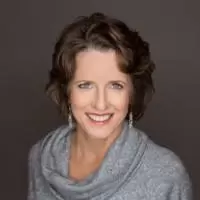
About Beth Brown, Ph.D.
Beth founded Team Aureus® after a successful 15-years of leading national program development and adult education at The First Tee. It was there that she established a track record of turning groups into high-performing teams. Overall, she has led more than 60 teams in the creation of programs that have impacted thousands of youth and adults.
Beth’s background in business, leadership and collegiate sports makes her an expert in performance psychology, organizational development, team building, and creating successful programs for youth and adults. She has the unique, multi-dimensional perspective of having been a player, coach, consultant, researcher, and educator in the world of Division I athletics.
Her passion for teaching people how to achieve their highest level of performance is fortified with extensive education and experience. Beth is a Certified Mental Performance Consultant (CMPC) through the Association for Applied Sport Psychology, an LPGA Teaching Professional, and a 5 Voices and 100X Leader Certified Coach. She holds a PhD in Education (Sport Psychology) from the University of Kansas, and a Master of Arts in Sport Sciences from the University of the Pacific.
About the Podcast
The Lead with Levity podcast is a show for leaders who care deeply about what makes/breaks the employee experience. Our guests are dynamic researchers, practitioners, consultants, and business leaders. We cover foundational elements that are needed to avoid forcing the fun. We also invite lively managers who lead with levity to show us how it’s done. Thanks for joining us on this journey.
